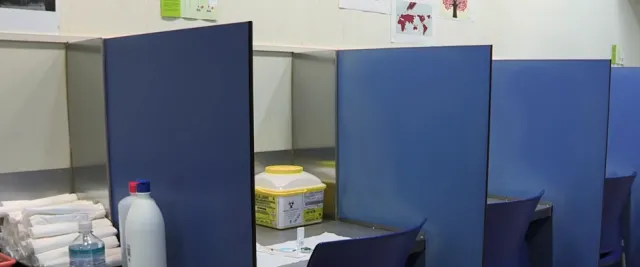This year, the EU Early Warning System (EWS) on new psychoactive substances (NPS) celebrates its 25th anniversary. Operated by the EMCDDA, in close cooperation with Europol and partners (1), it was the first regional early-warning mechanism set up to monitor and respond to uncontrolled new drugs. Today, ahead of the anniversary on 16 June, the Early Warning System network holds its annual meeting in Lisbon.
The meeting brings together participants from across Europe, including delegates from national early-warning systems (27 EU + Turkey and Norway), as well as from Europol, the European Commission, the EMCDDA and other bodies. Experts from the World Health Organization (WHO) and the United Nations Office on Drugs and Crime (UNODC) will provide an international perspective.
The focus of the two-day meeting will be ‘25 years of early warning and response to new psychoactive substances in Europe: past, present, future’. The meeting will kick off with a look at the origins of the EWS and its achievements, presenting a timeline of key moments in its first quarter of a century. This will be followed by an overview of EWS activities in 2021, featuring contributions from the EMCDDA, Europol, the European Medicines Agency, the EC and the Joint Research Centre.
Representatives from national EWS will provide updates on their national NPS situation and, in particular, share their perspectives on nitrous oxide (‘laughing gas’). This session will be followed by updates on the NPS situation in Europe, including early-warning activities and risk assessments.
The remainder of the meeting will be dedicated to: ‘Lessons learned from 25 years of monitoring NPS in Europe’. On the sub-theme ‘Build, maintain and strengthen early-warning systems’, a multidisciplinary session will hear the experiences of experts in clinical toxicology, forensic toxicology, forensic laboratories, drug checking, preparedness planning for new opioids and national early-warning systems. ‘Global markets create glocal threats’ will be the sub-theme of the final session which will include an overview from UNODC and the WHO of the situation at global level. Expert presentations will complete the picture, covering synthetic opioids, synthetic cathinones and synthetic cannabinoids, including the emergence of semi-synthetic cannabinoids.
An EWS meeting for the European Neighbouring Policy (ENP) countries will take place at the EMCDDA on 9 June under the EU4Monitoring Drugs (EU4MD) project. The meeting will include updates on the EU NPS situation, a roundtable discussion and case studies.


















